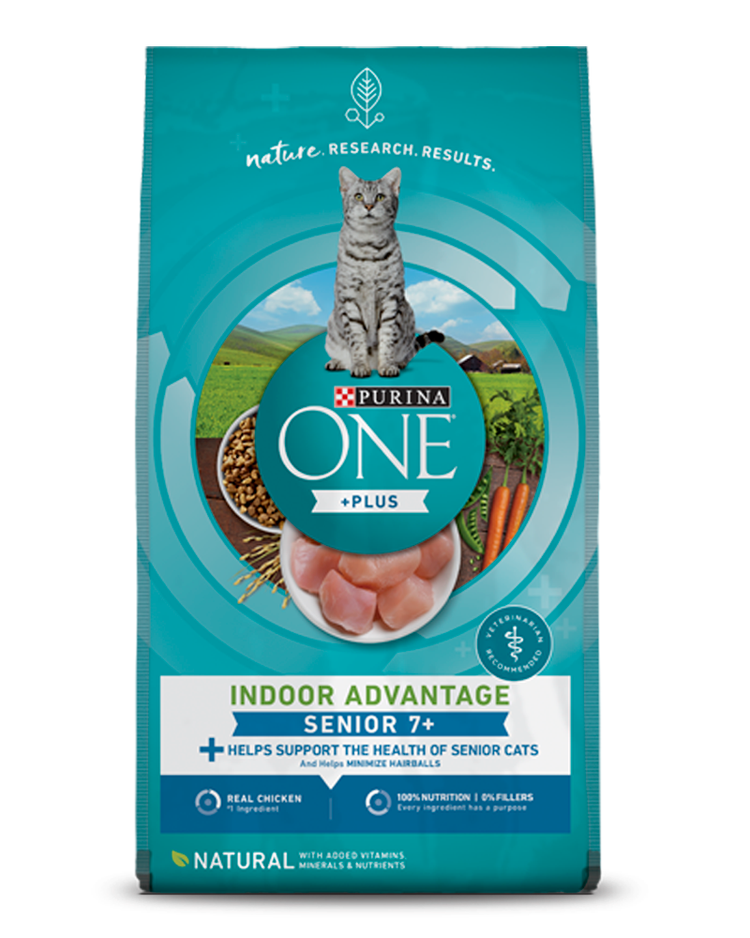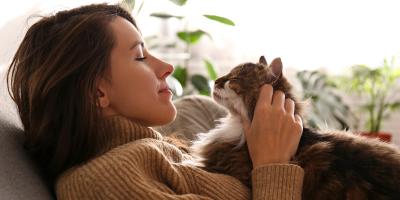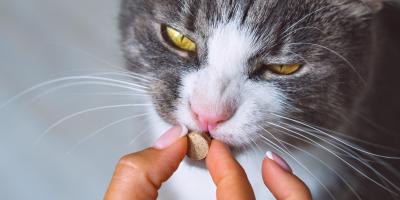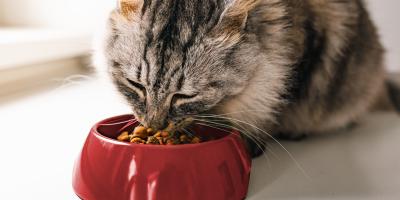Senior Cat Age: Understanding Elderly Cat Needs

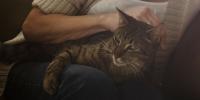
As the caretaker of your cat, it’s important to track behavioral and health changes starting from the day you bring them home.
For each stage of your cat's development, they will have specific needs to address, which may include dietary, medical or emotional support. That’s why it’s important to know the answer to the question, When is a cat considered a senior?
Since our feline companions don’t get fine lines or wrinkles like people, cats’ signs of old age can be subtle. Changes in your cat are most likely to start on the inside as they approach their golden years, but there are a few telltale signs to watch for.
When is a Cat a Senior?
Although most cats are considered seniors by the age of seven, some felines will continue to engage in kitten-like antics well into their golden years. Since there’s no exact age when your individual cat officially becomes a senior, you’ll have to keep an eye out for signs of aging.
Signs of Old Age in Cats
As your cat starts to reach their golden years, it’s natural to wonder what to expect. Elderly cats are quite similar to humans who reach old age and will experience changes in their physical and mental abilities as years go by. Here are some of the more common signs your cat is now a senior.
- Loss of Agility: One of the first things you will notice when your cat becomes a senior is a lower energy level than usual. This can also be a sign of a medical problem, including pain associated with arthritis, so it’s good to check with your veterinarian. Nonetheless, you can expect your cat to gradually slow down as they get closer to senior status.
- Changes in Their Playtime Routine: Playtime for elderly cats will likely be comprised of shorter sessions, less energetic chases and more walking around the house or climbing trees. Depending on your cat’s health, you may need to adjust some of the usual games and bring them down to a slower pace.
- Changes in Sleeping Patterns: You may notice your cat waking up and vocalizing in the middle of the night or enjoying shut-eye a little more than usual. A cat’s sleeping habits could be a giveaway that they’re approaching their elderly years.
- Increased Disorientation: If your cat starts getting confused while doing simple tasks such as finding their food bowl or getting to their bed, this disorientation may be caused by a cognitive decline related to aging. In this case, you should discuss any unusual behavior with your veterinarian.
- Changes in Body Condition and Weight: Weight fluctuations can also be a sign of old age in cats. Most cats exercise less as they age, so they may gain weight as a result. As they become geriatric, they may then lose weight and muscle mass.
On the other end of the spectrum, some cats may suffer weight loss due to dental problems, which are also common in old age and can inhibit food consumption. You can check your cat’s body condition at home using a few simple steps. You may need to consider changing their food to accommodate their changing needs. See your veterinarian about any sudden changes in weight to rule out any medical concerns. - Changes in Behavior: Observe your cat’s behavior. Older cats can get a bit rusty when it comes to using the litter box, increasing the frequency of accidents in the house. Jumping in and out of the litter box can be challenging if they’re suffering from arthritis. Keeping their food, water bowls and litter box at ground level can make life more pleasant for them. Also, they might not groom themselves as thoroughly as before or might become moodier and less tolerant of changes to their environment.
Common Diseases for Elderly Cats
There are a few health problems that tend to appear later in a cat’s life. These are also signs of old age and you should keep a close eye on their development. They include:
- Dental disease
- Hyperthyroidism
- Arthritis
- Cognitive dysfunction
- Kidney disease
- Eye problems
- Decrease in hearing
How to Care for an Elderly Cat
- Keep a Consistent Exercise Routine: Don’t think playtime is over once your feline reaches the golden years. Your veterinarian can advise on a suitable level of activity for your cat to keep them well-entertained and engaged regardless of age.
- Keep Your Cat Mentally Sharp: Physical activity isn’t the only way to exercise your aging cat. You can keep them mentally stimulated and sharp while engaging in cat enrichment games. This is a fun way to strengthen the bond between you.
- Help Them Maintain Their Grooming Habits: A loss in agility and the stiffening of joints may result in a decreased ability for your cat to groom themselves as well as they used to. One sign of this is matted or oily fur. Be sure to brush your cat regularly to give them a helping hand.
- Keep an Eye on Their Mood: Many cats become less able to cope with stress as they age, which can result in moodiness and anxious behaviors. Be sure to educate yourself by reading up on cat anxiety.
- Keep the Necessities Close: Make sure your elderly cat has quick and easy access to the necessities like food and water dishes and their litter box. If necessary, it may be helpful to have multiple litter boxes and food and water dishes so wherever your cat goes in the house, they don’t have to travel too far. Keeping the essentials at ground level makes them more accessible.
With the proper senior cat nutrition, your usual veterinarian checkups, and a little extra tender loving care, there’s no reason why your older cat shouldn’t stay healthy throughout their later years.
To get more information on cats and kittens, visit our Pet Expertise page and hear from our pet experts.

Be Rewarded for Your Purina Purchases
Earn and redeem points for Purina products with myPurina app.

